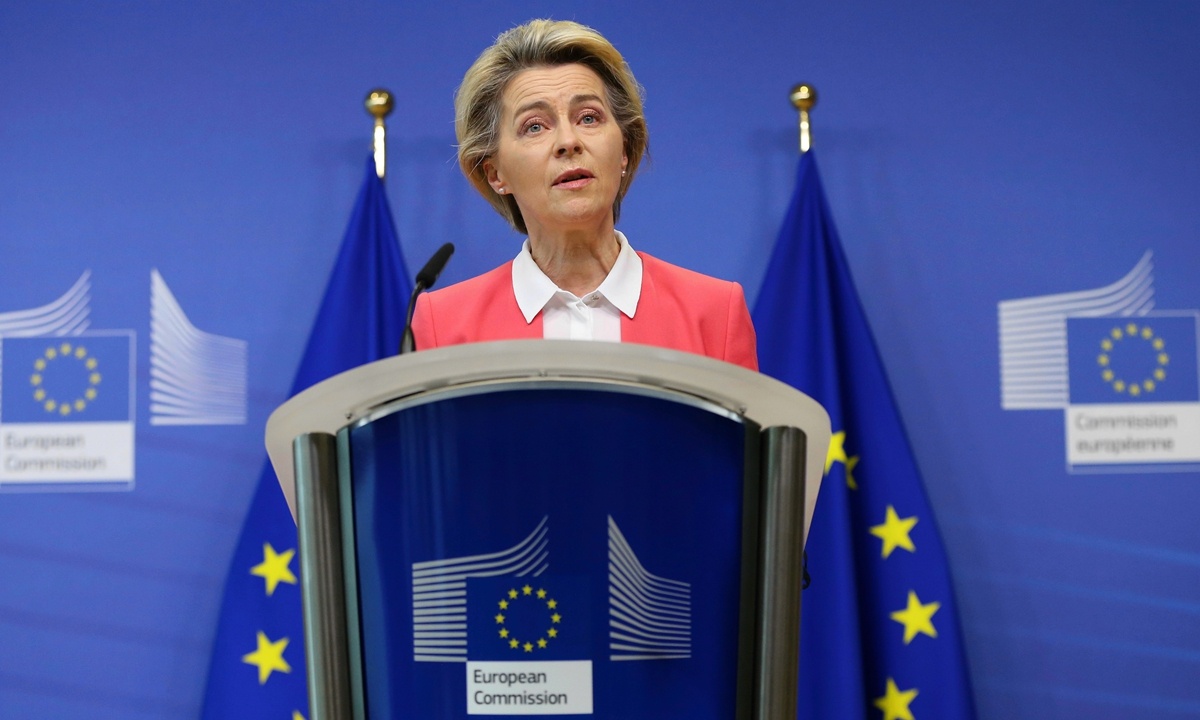
Ursula von der Leyen at a press conference on Sunday. Photo: VCG
The European Commission on Monday urged tougher COVID-19 screening of travelers as it frantically seeks to get to the bottom of vaccine delivery delays jeopardizing its inoculation strategy.
The European Union (EU) executive called on the 27 member states to impose pre-trip polymerase chain reaction (PCR) tests for all travelers allowed into the EU - presently only on "essential" business - and quarantine on arrival if they came from zones where more-contagious virus variants were spreading.
It also recommended a similar heightened testing and quarantine regime, where possible, for essential travelers between - or even within - EU countries with high-risk areas classed as "deep red" by the European Centre for Disease Prevention and Control.
"The situation in Europe with the new variants have led us to take difficult but necessary decisions. We need to keep safe and discourage non-essential travel," the European Commission chief Ursula von der Leyen tweeted.
The recommendations added even more restrictions to the EU's cherished passport-free Schengen zone, underscoring Brussels' deepening worries about a looming third wave of the coronavirus pandemic made far worse by the variants.
The sense of urgency has escalated with British-Swedish pharmaceutical group AstraZeneca announcing on January 15 that it will not meet its COVID-19 vaccine delivery commitments to the EU.
That came a week after US group Pfizer said its doses, developed with German partner BioNTech and made in Europe in a Belgian factory, would also be delayed.
Together, those announcements risked up-ending vaccination programs that depend on people getting two jabs weeks apart.
That would potentially trash von der Leyen's pledge made just a week ago to inoculate 70 percent of adults in the EU by the end of August.
It would also have a knock-on effect for the EU's plan to contribute excess doses to a World Health Organization-led COVAX initiative to provide vaccines to poorer nations around the world.
Von der Leyen spoke with AstraZeneca CEO Pascal Soriot early on Monday, and member states were pressing the company for answers and a rapid solution in further talks during the day, Commission spokesman said.


